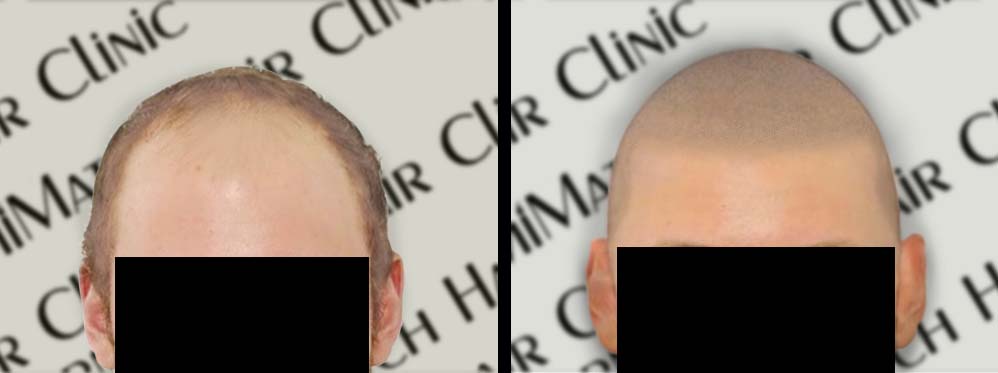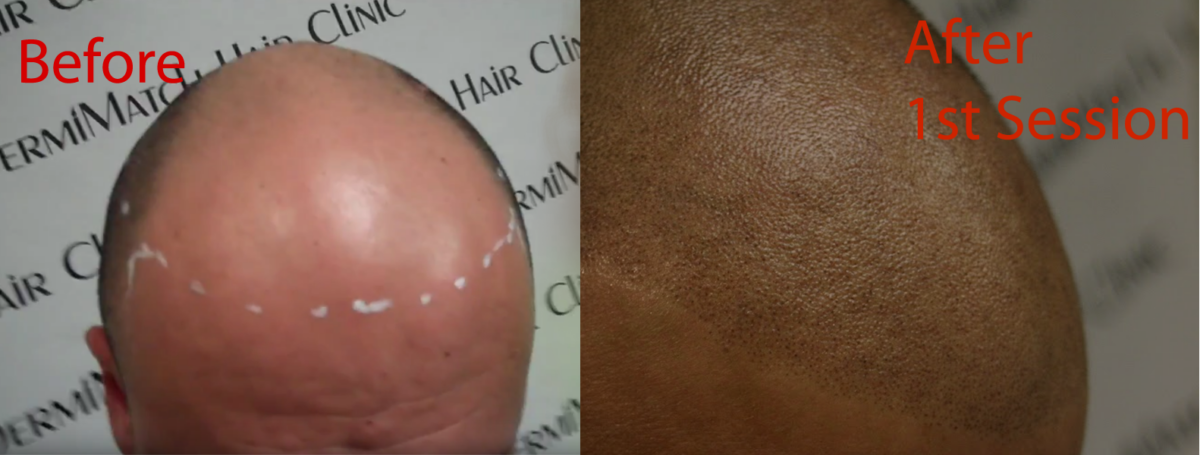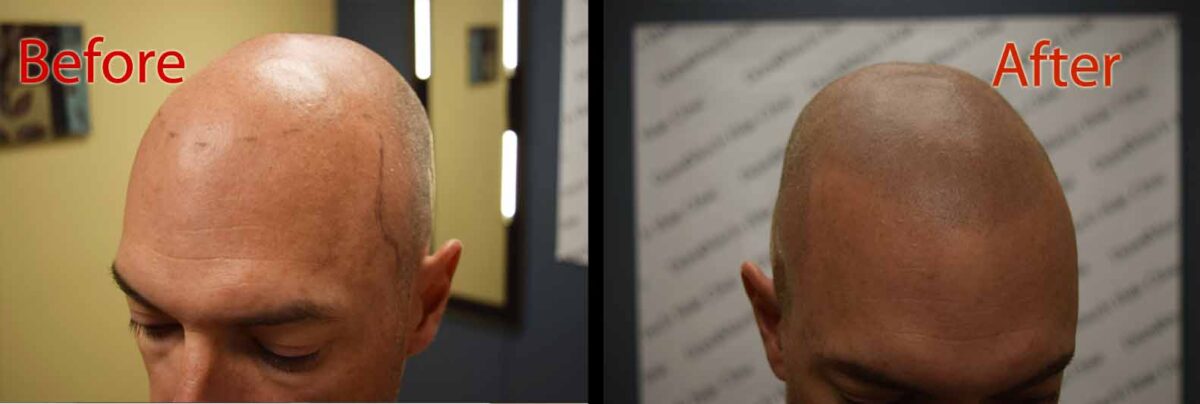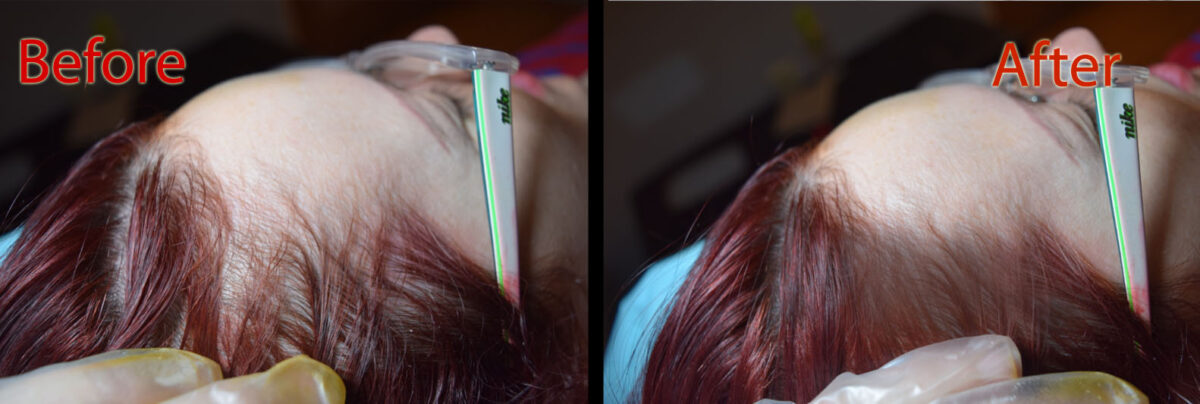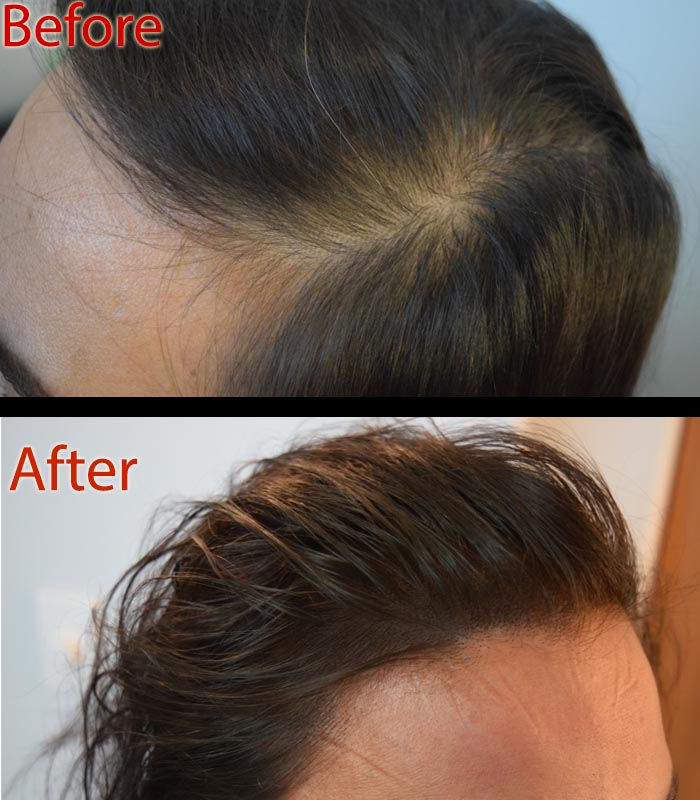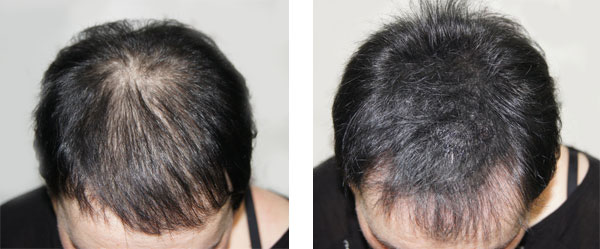Rosemary oil for hair growth has surged in popularity as a natural remedy for those seeking help for hair loss. Its potential benefits are attributed to a rich blend of bioactive compounds, including rosmarinic acid, carnosic acid, and camphor.
These powerhouses are believed to improve circulation, reduce inflammation, and stimulate hair follicles for thicker, healthier growth. But its effectiveness across populations is still doubtful. There are various factors. Let’s discuss them below.
Unveiling the Benefits of Rosemary Oil for Hair Growth
One of rosemary oil’s primary strengths lies in its ability to enhance circulation in the scalp. Increased blood flow translates to a delivery system for essential nutrients and oxygen to hair follicles, potentially fueling growth. A 2013 study published in Phytotherapy Research investigated the combined effects of rosemary oil with other essential oils and carrier oils.
The results were encouraging, demonstrating increased hair thickness in participants with androgenetic alopecia compared to a control group. Researchers claim that rosemary oil can help improve microcapillary perfusion in the scalp, essentially creating more efficient delivery routes for vital hair follicle nourishment.
Beyond Circulation: DHT Inhibition and a Healthy Scalp
The potential of rosemary oil for hair growth could be due to improved circulation. Besides, it might offer an additional benefit by inhibiting dihydrotestosterone (DHT), a hormone that plays a significant role in AGA.
A 2012 study in Phytomedicine focused on carnosic acid, a key component of rosemary oil. The study revealed that carnosic acid inhibited 5α-reductase, the enzyme responsible for converting testosterone to DHT. By potentially lowering DHT levels, rosemary oil may slow down hair loss and encourage new hair growth.
Furthermore, rosemary oil‘s antimicrobial and anti-inflammatory properties contribute to a healthier scalp environment. A 2015 study in the Journal of Medicinal Food highlighted rosemary oil’s potent antimicrobial activity against various bacteria and fungi. A healthy scalp, free from infections and inflammation, provides the optimal foundation for optimal hair growth.
Rosemary Oil vs. Minoxidil
Perhaps the most compelling research on rosemary oil for hair growth comes from a 2015 study published in Skinmed Journal. This trial compared the effects of rosemary oil to minoxidil a widely used hair loss medication, in individuals with AGA.
After six months, both groups experienced significant increases in hair count, with no significant difference between the two treatments. Notably, the rosemary oil group reported less scalp itching, a common side effect of minoxidil. This suggests that rosemary oil might be a safer and equally effective alternative for some individuals.
So is Rosemary Oil the Solution to Hair Loss?
While these studies paint a promising picture, it’s crucial to acknowledge that most research has been conducted on small groups or in combination with other treatments. More extensive clinical trials are needed to definitively understand the long-term efficacy and optimal dosage of rosemary oil for hair growth in humans.
Rosemary Oil vs. Scalp Micropigmentation
While rosemary oil holds promise as a natural hair growth treatment, it’s not a one-stop fix all. Rosemary is not the solution to all hair loss problems. Remember, hair loss causes are different. The natural remedy works only in cases of normal hair shedding. It may not work in cases of medication side effects or hormone-induced hair loss.
Scalp micropigmentation, on the other hand, provides an immediate and long-lasting cosmetic improvement. No, it does not induce hair growth but this technique helps hide scalp flaws.
It involves depositing pigment into the scalp to mimic hair follicles. Clients love SMP for it recreates the look of a closely shaved style.
A 2019 study published in the Journal of Cosmetic Dermatology evaluated patient satisfaction with SMP. The results were overwhelmingly positive, with 96% of participants expressing satisfaction with the outcome and reporting no significant adverse effects.
The study concluded that SMP is an effective, safe, and permanent solution for various types of hair loss, offering a potentially better alternative for those who haven’t seen satisfactory results with medications or rosemary oil for hair growth.
The Role of Scalp Artist
However, you can derive maximum results from scalp micropigmentation if you choose a well-trained and skilled Arizona SMP practitioner. Only an experienced scalp artist in Arizona has the knowledge and experience of working on different types of hair loss. Scalp experts at DermiMatch Clinic pride themselves on their role in helping transform the experience of clients suffering from hair loss.
Get help today. Schedule your consultation now.


